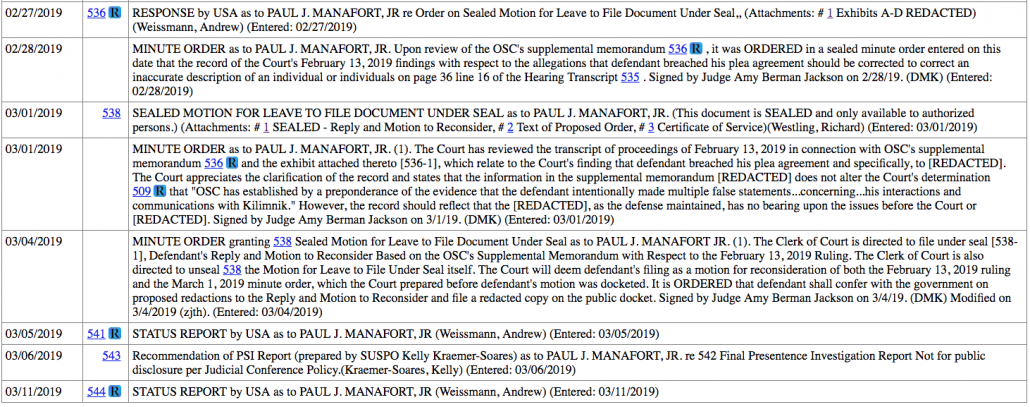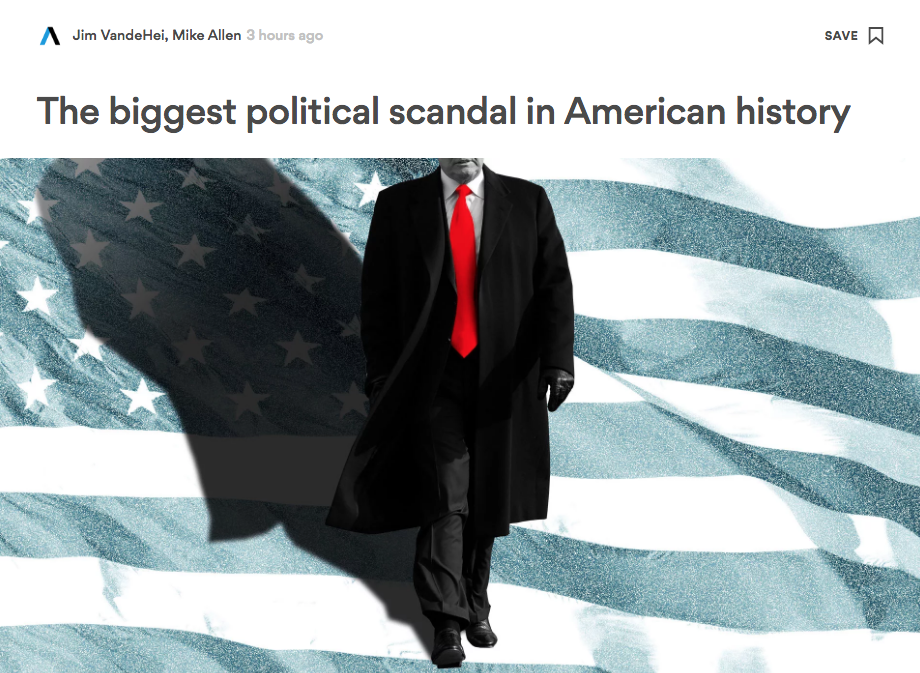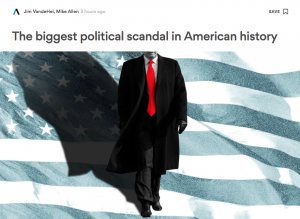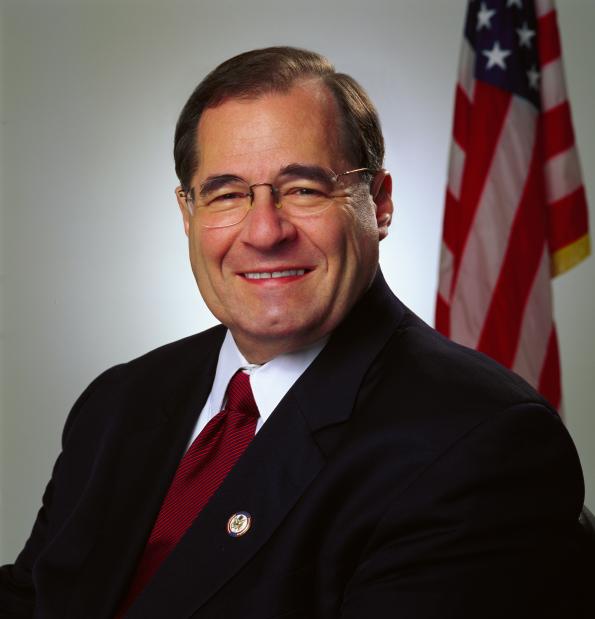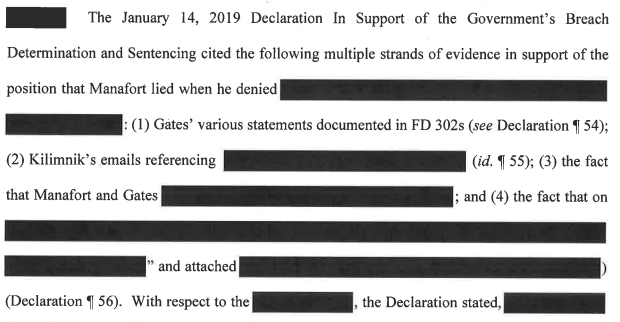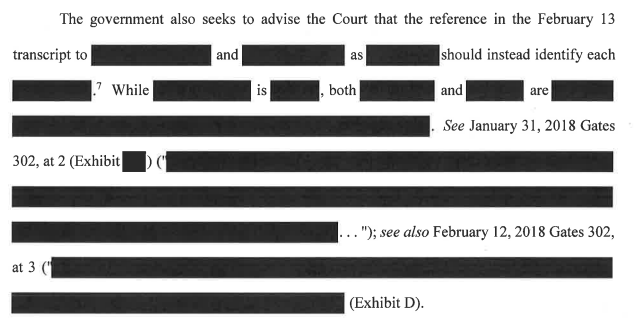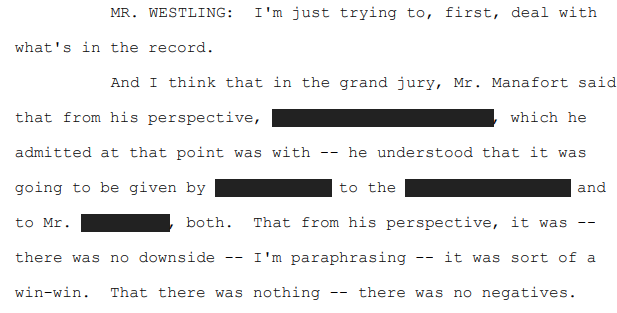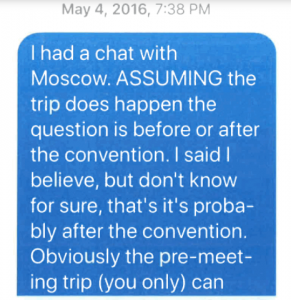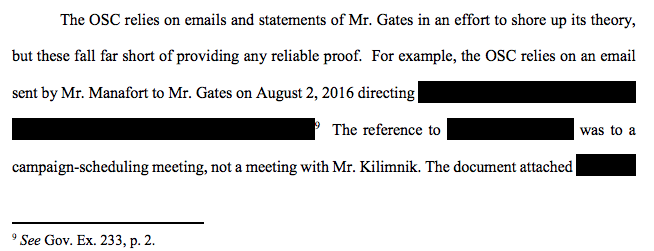Michael Cohen is suing Trump Organization for refusing to fulfill an indemnity agreement they had. By itself, the suit offers the promise that these shitholes will rip each other apart in court. Discovery could be awesome, especially since the suit names Eric and Don Jr.
It also may lead other members of the Joint Defense Agreement to question how long Trump will remain loyal to them.
But I’m acutely interested in the timeline the lawsuit draws out for what it says about Trump’s efforts to cover-up his own criminal actions, laid out below. The italicized entries are ones I’ve added to Cohen’s own timeline — many of those dates come from this post on the timeline of the Special Master review of materials seized in the raid of Cohen’s home. The underlined ones are ones in Cohen’s complaint that I’ve editorialized on, to note where someone is known to have told a lie that coordinated with Cohen’s own lies.
As you can see, Trump’s spawn were happy to pay Cohen’s legal bills so long as he continued to tell the agreed upon lies.
But that changed when he got raided in April 2018. As I’ve noted, even though Cohen and Trump succeeded in getting a Special Master appointed to review all the discovery, that appointment didn’t succeed in withholding any of the most damning materials. But the Special Master process did give Trump an opportunity to review what Cohen had — including to identify what he had tape recordings of.
This probably led them to two conclusions. First, because Cohen had taped incriminating conversations (to ensure he’d get paid, Cohen explained in his OGR testimony), he had exposed Trump where he otherwise wouldn’t have been exposed. But because he hadn’t taped the most damning conversations — those implicating the Trump Tower Moscow deal and other Russia-related issues — they could fuck him over with relative impunity.
And that’s about when Trump stopped paying for Cohen’s silence. Notably, Cohen’s filing states that “On June 2018, Mr. Cohen began telling friends and family that he was willing to cooperate with the Special Counsel,” as if there once was a date there. He doesn’t give us that date.
But we can see from the timeline that it happened at a key point in the Special Master review, which is the same time Trump stopped paying for Cohen’s silence.
Two things are unclear to me.
First, as the title suggests, which came first, Cohen’s willingness to cooperate, or Trump’s newfound unwillingness to pay. My bet is it’s the latter, and my bet is it was a response to what they were seeing in the Special Master review. That is, once they decided that Cohen couldn’t hurt them, they cut him free, to sink on his own.
I’m also curious about why Cohen included Papadopoulos, Manafort, Gates, Page, Sessions, and Flynn in his timeline. He is not known to have testimony relating to any of these people — except, perhaps, Manafort. And they weren’t the only ones in Trump’s JDA (Gates has said he was never in the JDA) to have testified in this period (for example, KT McFarland had her first interview).
But it suggests Cohen may have more on the JDA he’s hanging over the others. Which may get litigated in this suit.
Timeline
August 2016: Karen McDougal catch and kill.
October 2016: Stormy Daniels hush payment.
January 13, 2017: SSCI opens Russian investigation.
January 25, 2017: HPSCI opens investigation.
January and February 2017: Cohen seeks reimbursement for hush payment to Daniels.
March 2017: Cohen named RNC Deputy Chair.
May 17, 2017: Mueller appointed.
~May 18, 2017: Cohen meets with Trump and Jay Sekulow, implicitly agree to tell a cover story.
End of May 2017: Cohen lawyers up with McDermott Will & Emery.
May 31, 2017: HPSCI subpoenas Cohen.
July 2017: Trump Organization enters into indemnity agreement in context of joint defense agreement.
August 28, 2017, Cohen sends letter making false statements to HPSCI and SSCI.
September 7, 2017: Don Jr testifies before SJC, repeating Cohen’s false statement on Trump Tower Moscow.
September 19, 2017: Cohen lies to SSCI about Trump Tower Moscow.
September 26, 2017: Roger Stone lies to HPSCI about relaying information about WikiLeaks to campaign, including Trump.
October 5, 2017: George Papadopoulos pleads guilty to making false statements to FBI agents relating to contacts he had with agents of the Russian government while working for the Trump Campaign.
October 25, 2017: Cohen testifies to SSCI, lying about Trump Tower Moscow.
October 25, 2017: First payment, in sum of $137,460, to McDermott.
October 30, 2017: Paul Manafort and Rick Gates indicted by a federal grand jury, including conspiracy against
the United States
November 2, 2017: Carter Page testifies before HPSCI.
November 14, 2017: AG Jeff Sessions testifies before HJC.
December 1, 2017: Mike Flynn pled guilty to lying to the FBI about conversations he had with the Russian ambassador.
December 6, 2017: Don Jr testified before the HPSCI, sustaining Cohen’s lies about Trump Tower Moscow.
December 2017: Don Jr and Eric Trump confirm they will continue to pay Cohen’s attorneys’ fees and expenses.
March 6, 2018: Daniels files a lawsuit against Trump and Cohen in CA seeking to invalidate NDA.
March 26, 2018: Daniels amends lawsuit to allege that Cohen defamed Daniels through public statements he made in or around February 2018.
~March 20, 2018: McDougal files a lawsuit against AMI seeking to invalidate the NDA.
April 5, 2018: Trump says, of payment to Daniels, “You’ll have to ask Michael Cohen. Michael is my attorney. You’ll have to ask Michael.”
April 9, 2018: Cohen raided.
April 9, 2018: Trump states, “So, I just heard that they[, the FBI,] broke into the office of one of my personal attorneys, a good man, and it’s a disgraceful situation. It’s a total witch hunt. I’ve been saying it for a long time. . . . It’s an attack on our country in a true sense. It’s an attack on what we all stand for.”
April 13, 2018: Challenge to seized materials, leading to appointment of Special Master.
April 21, 2018: Rudy Giuliani associate Robert Costello emails Cohen and tells him he “can sleep well tonight” because he “has friends in high places” to reassure Cohen that the President was not made him. Emails also say,
I just spoke to Rudy Giuliani and told him I was on your team. He asked me to tell you that he knows how tough this is on you and your family and he will make (sure) to tell the President. He said thank you for opening this back channel of communication and asked me to keep in touch.
There was never a doubt and they are in our corner, Rudy said this communication channel must be maintained. He called it crucial and noted how reassured they were that they had someone like me whom Rudy has known for so many years in this role
April 21, 2018: Trump tweets, “The New York Times and a third rate reporter named Maggie Haberman, known as a Crooked H flunkie who I don’t speak to and have nothing to do with, are going out of their way to destroy Michael Cohen and his relationship with me in the hope that he will ‘flip.’ They use . . . non-existent ‘sources’ and a drunk/drugged up loser who hates Michael, a fine person with a wonderful family. Michael is a businessman for his own account/lawyer who I have always liked & respected. Most people will flip if the Government lets them out of trouble, even if . . . it means lying or making up stories. Sorry, I don’t see Michael doing that despite the horrible Witch Hunt and the dishonest media!”
April 26, 2018: On Fox & Friends Trump states that Mr. Cohen is a “good person” and “great guy” who handled “a percentage of my overall legal work. . . . He represents me – like with this crazy Stormy Daniels deal he represented me. And, you know, from what I see he did absolutely nothing wrong. . . . I hope he’s in great shape.”
April 27, 2018: Kimba Wood appoints Barbara Jones as Special Master.
Through May 2018: Trump Organization continues to pay Cohen’s legal fees, totaling $1.7 million.
May 6, 2018: George Stephanopoulos asks Rudy Giuliani, “Are you concerned at all that Michael Cohen’s going to cooperate with prosecutors?” Mr. Giuliani responds, “No. I expect that he is going to cooperate with them. I don’t think they’ll be happy with it because he doesn’t have any incriminating evidence about the president or himself. The man is an honest, honorable lawyer.”
June 4, 2018: Jones issues first report (covering a number of Cohen’s recordings), disagreeing with three claims of privilege.
June 6, 2018: Trump lawyer Joanna Herndon requests that any challenge to Special Master decision be sealed.
June 7, 2018: SDNY demands that any legal discussions of challenges be public.
June 8, 2018: Judge Wood agrees with SDNY, leading Trump to withdraw certain privilege claims.
June XX 2018: Cohen begins telling friends and family that he was willing to cooperate with the Special Counsel and federal prosecutors in connection with the SDNY Investigation.
June 2018: Trump Organization ceases to pay McDermott’s invoices, without notice or justification.
June 13, 2018: Daniels files a new lawsuit in CA against former attorney, Keith Davidson, and Cohen, alleging that they “colluded” and “acted in concert” to “manipulate” Daniels and benefit Trump.
June 14, 2018: NYAG subpoenas Cohen in Charitable Foundation suit.
June 15, 2018; Trump says, “I haven’t spoken to Michael in a long time. . . . [H]e’s not my lawyer anymore.”
June 22, 2018: Judge Wood finds that Cohen didn’t do much privileged lawyering.
July 2, 2018: Jones begins releasing files to SDNY.
July 2, 2018: Cohen tells Stephanopoulos, “To be crystal clear, my wife, my daughter and my son, and this country have my first loyalty … I will not be a punching bag as part of anyone’s defense strategy. I am not a villain of this story, and I will not allow others to try to depict me that way.”
July 23, 2018: Cohen withdraws privilege claims from 12 recordings.
July 26, 2018: On CNN Rudy claims of Cohen, “He has lied all his life” and that he is a “pathological liar.”
August 7, 2018: Cohen begins meeting with Mueller. At his first proffer, he lies.
August 21, 2018: Cohen pleads guilty in SDNY.
September 12, 2018: First truthful Cohen proffer with Mueller.
November 29, 2018: Cohen pleads guilty with Mueller.
December 12, 2018: Cohen sentenced.
December 16, 2018: Trump tweets, “Remember, Michael Cohen only became a ‘Rat’ after the FBI did something which was absolutely unthinkable & unheard of until the Witch Hunt was illegally started. They BROKE INTO AN ATTORNEY’S OFFICE!”
January 25, 2019: Cohen asks for reimbursement for $1.9 million in legal fees and $1.9 in restitution.
Update, March 14: Included Robert Costello email.
As I disclosed last July, I provided information to the FBI on issues related to the Mueller investigation, so I’m going to include disclosure statements on Mueller investigation posts from here on out. I will include the disclosure whether or not the stuff I shared with the FBI pertains to the subject of the post.


